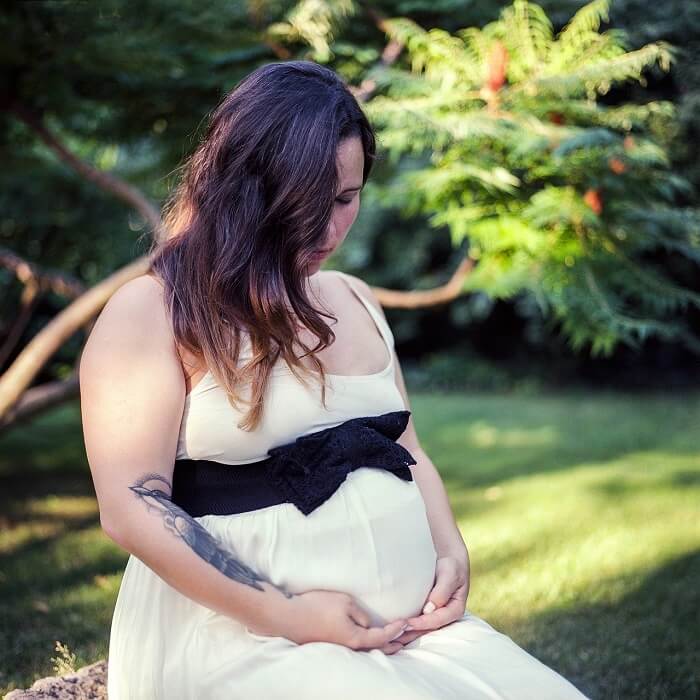When you are pregnant, your body undergoes plenty of changes. Most side effects are properly discussed and well-known. However, few people would actually tell you about the impact that it has on your hair as well as another standard hair-coloring regimen. This is because it can cause some crazy alterations to the hair.
Find out further to keep yourself informed and pick up some vital hair loss reversal and hair care tips.
Do You Have Thinner or Thicker Hair When Pregnant?
Your body, as well as your hair, undergoes plenty of changes during pregnancy. Some women sense as if they have healthier and thicker hair during maternity. A few feel that they have hair that is dull, thinning, and of a varied texture during pregnancy. It all actually varies from person to person.
In most cases, people have thick, long, and healthy hair during pregnancy. As there is a hormone overload, such hormones actually prevent falling out of hair as it normally would. You can typically lose as many as 100 strands every day. During pregnancy, those strands never fall as they would usually. This leads to thicker hair.
After the birth of your baby, your hair again begins to undergo changes. This leads to thicker hair. Once your baby gets born, there is again a change in your hair once more. Generally, after breastfeeding is stopped – if women choose to do that, about 6 months right after birth, hair begins to thin and fall out.
This is known as postpartum loss of hair. At times, this gradually occurs without causing any pain. At times, it occurs in clumps. Else, you lose the maximum amount of hair around your hairline. Do not stress, as your hair needs to go back to normal about a year after the birth of your baby. It is not a forever thing.
What are Some Top Tips for Hair Care for Pregnant Women?
Pregnancy can put your hair under stress, whether it comes to frequent urination, fatigue, constipation, bloating, gas, or morning sickness. If you wish to help with the period of transition, here are some hair care tips for improving your hair condition.
1. Ensure that your prenatal has a balanced diet.
The health of hair depends a lot on nutrition.
2. Minimize your hot tools as much as possible.
It will be a good idea to give a break to your hair. In case you want to wash your hair prior to bedtime, ensure that you blow-dry the hair. Hair is more vulnerable to breakage while wet and it will not benefit to roll around while you are sleeping.
3. Use a good conditioner and shampoo – preferably of salon quality.
Try to minimize washing as much as you can. Look for products that do not have any of the additional ingredients that can build on your scalp and hair.
4. Do not opt for ponytails, cornrows, braids, and other hairstyles that are very tight.
These can pull the hair, and activate the process of hair fall.
5. Massage the scalp with oil or without it.
This can help in hair care and stimulate the growth of new hair. And prevent the fallout of present hair.
6. Reduce your stress
Stress might be extremely destructive for the body at the time of maternity as well as after delivery. Stress activates the loss of hair, and can worsen the quality of hair. You may try various coping systems to combat stress, like therapy sessions, light yoga, meditation, breathing activity, fun hobbies, etc.
7. Discuss with a physician n case you suffer from too much loss.
Some conditions can arise postpartum, and it is a good idea to rule the same out as well.
Can You Safely Apply Hair Color During Pregnancy?
You should also find out how your hair color can be affected by pregnancy. Many people have problems coloring their hair at every appointment. However, the color fails to be taken by the hair as well as before pregnancy.
In a few pregnant females, the prior hair color does not come out sufficiently. In case you have blonde hair and generally get highlights, the lightener that is used cannot remove more than your yellow or orange stage, although the color mix/formula is the same as in the pre-pregnancy stage.
Sometimes, the gray strands are not fully covered for the first time. This can be frustrating. In a few cases, hair can take darker or lighter colors than usual. The toner would be extra ashy and dull. It is true that a few doctors do not advise coloring the hair at the time of pregnancy. The process is generally quite safe.
Most studies show that the chemicals obtained in color are not extremely toxic. 98% of people, however, go on coloring their hair in maternity. If you are worried about the absorption of excessive chemicals, you may wait until after the 1st trimester to obtain additional reassurance. The skin absorbs very little, particularly in case you are not directly applying an all-over color on the scalp.
With everything taken into consideration, you would have good hair. During pregnancy, a lot happens all through your body and your hair is likely to be the least of your problems. It is essential for you to be aware of all the changes that occur in your hair so that you can easily deal with the same.




